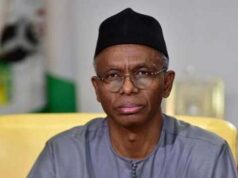By Dr. Jude Akubuilo
ON KIDNAPPING , AGITATION FOR SELF DETERMINATION & OTHER MATTERS
According to Neil Young & Associates International (NYA International), Nigeria was the No. 1 country for kidnap incidents in 2014. It used to be that the Nigerian press reported kidnapping stories, (then alien to the country),happening in foreign nations such as Colombia, Mexico and other South American hot spots. Today, it has become an everyday experience since most people have been touched in one way or another by this menace. Kidnapping erupted as a boil in the creeks of the Niger Delta, when militants discovered the lucrative business of kidnapping oil industry executives in their fight for control of petroleum resources domiciled in that region. It migrated to the Igbo hinterland where unemployed youth, apprentices denied settlement and duped by their masters and greedy criminal kingpins got into the business. From there, it inched northwards where elements of Boko Haram, itinerant Fulani herdsmen and organized criminals got involved. It migrated to the West and now engulfs the entire country. Today, criminal elements all over Nigeria now fight for a piece of this world’s billion dollar industry and in doing so, have elevated it to the cancer that is eating up the country today.
Many state governments have adopted extremely aggressive measures to counter this menace. Laws making kidnapping a capital offence are in place in many states, reinforced by demolitions of homes and seizures of properties of offenders. In some cases, extra judicial killings have been reported.
Some people have rationalized the kidnapping epidemic by blaming the failure of government in creating an enabling environment for job creation and entrepreneurship. The elevation of kleptocracy to a statecraft creates the unwholesome impression that theft, corruption, and embezzlement of public and private funds is normal. This wide scale corruption has impoverished generations unborn, while creating a very small segment of ultra wealthy Nigerians whose claim to wealth cannot be traced to any viable honest productive venture or entrepreneurship. Most of this ill-gotten wealth can be traced to public office holders, private sector parasites or criminal enterprises., it is not a surprise that the youth are drawn mostly to these sectors which have proven to be a short cut to success, the Nigerian style. Many of the youth involved in kidnapping believe that they are getting their own share of the national cake from the criminal class that have impoverished the masses. Put another way, it is believed that many kidnappers see the kidnapping business as tax on the wealthy.
However way you look at it, kidnapping has taken unwholesome dimensions which puts Nigeria once more, first in the world for the very wrong reasons. Nigeria is endowed with great natural resources especially oil which has been the nation’s primary income earner for decades. There is universal agreement that little or no effort was made by successive regimes to utilize the oil income judiciously. Most of the wealth is in the pockets of a few who have denied the masses the benefit of their commonwealth. To aggravate matters, the bulk of the stolen oil revenue is stashed in foreign bank accounts instead of being invested in productive enterprises in Nigeria, to create jobs and add value to the economy. The magnitude of graft and brazen theft of government revenue has numbed the consciousness of the people, especially when offenders constantly escape punishment. Cases of corruption and theft of public funds filed from the 1999 civilian regimes are still pending in the courts, engineered by a corrupt criminal justice system that bodes no good either for the accused nor the victim. One would think that crime caught on video tape, would guarantee a speedy trial, not in Nigeria. Compare this noxious attitude to other climes like the United States of America, where Bernard Madoff was jailed for 150 years for duping investors in a ponzi scheme, China where fraud and embezzlement of public funds attracts the death penalty or Japan where implicated officials simply commit suicide.
Successive Nigerian leaders, the political class, civil servants, employees at every opportunity consume the yam seedlings in their custodies, leading to the abysmal failure in healthcare delivery, education, infrastructure (roads, power, etc), security and all, a responsible government should provide for its citizens.
A few years ago, it was predicted that come 2015, Nigeria would be a failed state. Many vilified this statement as emanating from a prophecy of doom, pointing to the still collective existence of the entity, Nigeria as proof of the falsehood of the prediction. Objective analysts will however agree that a government that has failed to provide basic essentials like security, education, healthcare, infrastructure, economic development, employment and social security like Nigeria, is actually a failed state.
AGITATION FOR SELF DETERMINATION
Increasingly, different parts of Nigeria are asserting claims for self determination. The prominent voices include, the Indigenous People of Biafra, (IPOB), the Movement for the Actualization of the Sovereign State of Biafra, (MASSOB), now Biafra Independent Movement, (BIM), which seeks self determination for the Igbo Speaking areas of South East and South South and the Movement for the Emancipation of the Niger Delta, (MEND).
These agitations are anchored on the overwhelming belief of marginalization and lack of integration in the affairs of Nigeria. In the Niger Delta case, the promoters believe that the zone is not getting its fair share from the revenue accruing from the sale of crude oil and natural gas from their native soil. In addition, the pollution from the oil industry has decimated the non oil economy of the region like fishing and agriculture.
Some have advised government to ignore these individuals or to suppress their agitations by force which cannot bode well for the nation. Adopting this advice will be fatal. Many of the insurgencies raging in different parts of the world emanated from the quest for self determination as in Yemen, Turkey, Malaysia, the Philippines and many others. Such agitation led to the breakup of Sudan, the Balkan States and the former Soviet Union.
Other parts of Nigeria like the Western States though not as vocal, have created the infrastructure to exist independent of the Nigerian State. It is alleged that the Western States have established a regional structure that has a flag, a common anthem and other paraphernalia of an independent country masked as regional cooperation. The nineteen Governors of the Northern States of Nigeria, under the aegis of the Northern Nigeria Governors’ Forum are involved in constructive engagement for regional economic cooperation, and security amidst other matters. All these show that Nigeria is increasingly developing fault lines that need to be rapidly addressed to prevent permanent fractures.
The importance of constructive engagement based on good faith is imperative to de-escalate these agitations. Dialogue will elicit the reasons for the restiveness and maybe help to reach a resolution. Some years ago, the Niger Delta was a no go area, it was a war zone until President Shehu Yardua, of blessed memory, initiated dialogue with the Niger Delta Militants giving birth to the Amnesty Program. The peace that ensued, guaranteed Nigeria many years of peak production during the oil boom.
Certain measures need to be adopted immediately to reduce the threats to the federation. The vigorous implementation of the Federal Character in all appointments as envisaged by the constitution is important to address the rising cries of marginalization by many ethnic groups across Nigeria. Presently, it appears that most appointments come from one region. This trend if not reversed immediately will be fodder for separatists.
The Niger Delta Development Commission must be held accountable to deliver on the mandate as envisaged by the instrument that established it. Rather than be a funnel for illicit funds enriching only a few, it must truly address development, job creation, environmental issues, youth empowerment and healthcare in the Niger Delta Region.
Fiscal Federalism must be restructured such that the misallocation of billions of Naira will cease and the allure of embezzlement of public funds can be stemmed. Presently, no state in Nigeria can truly exist without the monthly federal allocation from the center. Until recently, there was little incentive to diversify the revenue streams, and very little integrity or probity in the utility and allocation of fiscal resources. Added to the burden of a bloated and largely ineffective public sector, forming a conglomerate of non viable states and local governments.
Finally, the President will be well served if he convokes a few truly detribalized Nigerians to selflessly study the proposed amendments to the Nigerian Constitution submitted by the Senator Ike Ekweremadu Committee and the proceedings of the last National Conference. Embedded in all that painstaking work may be gems that could prevent Nigeria from disintegration.
THE CASE FOR RE-BRANDING NIGERIA
The late Prof. Dora Akunyili wrote:
“My Mission to Re-brand Nigeria
It is common knowledge that the world has a very negative perception of Nigeria. This poor image was foisted upon Nigeria by the international community and given flesh by the bad behaviour of a few of us both within and outside the country.
The negative perception about Nigeria has gone unchallenged for so long that it is beginning to stick in the consciousness of most people around the world that most Nigerians are criminals or fraudsters. Consequently, across the globe, in airports and other public places, whenever the green passport is sighted, we are asked to stand aside for special screening. We are not even given the benefit of the doubt.
In the highly competitive world in which we live, Nigeria will have no choice than to present a compelling and coherent image to the world if she wants to be taken seriously.
When I assumed office as the Chief Image Maker of this great country in December 2008, I decided that the negative perception about Nigeria by the international community needed to be addressed. This is because if we do not make any concrete effort to address our image problem, the situation will continue to get worse, and Nigerians will not only be ridiculed as a people, but investors will also be discouraged from coming to invest in Nigeria.
I started by studying all past government interventions in addressing Nigeria’s image problem – why some failed, why some succeeded but were not sustained. Some of those past interventions include Ethical Revolution, Green Revolution, MAMSER, War Against Indiscipline (WAI), and most recently, Heart of Africa.
In the days of WAI, we all saw Nigerians in their real elements: patriotic, orderly, focused, and with a sense of community. We surprised ourselves. Unfortunately, this was not sustained.”
Since then, the problem has gotten worse for Nigeria. It can mostly be traced to the odium of the putrefying stench emanating from corruption in Nigeria. What a welcome relief it was, when President Buhari embarked on a frontal attack on this cancer which has decimated Nigeria.
In my 2005 article, Go Tell Pharaoh I wrote:
“Fraud is a cancer. No nation suffering from this disease can survive
unless the cancer is excised. Since fraud is endemic in our
society, permeating the whole hierarchy, one is understandably
tempted to write-off the current generation.
Many of our problems can be attributed to fraud. For example, the
poor quality of education stems from the buying of admission by
otherwise unqualified students; the buying of grades by students; the
issuance of certificates and degrees to illiterates; contractors who
collect money without doing the work required by their contracts;
civil servants who are paid for doing nothing. ……….
The private sector does not fare better. The cheating and
dishonesty have taken on greater dimensions leading to the notorious
419 syndrome…………. Such levels of dishonesty do not go unnoticed at the
global and international level. Nigerians overseas face daily
embarrassment as coworkers are inundated with 419 letters soliciting
participation in one bogus undertaking or the other. The current
world view of Nigerians is that they are crooks, dishonest and cannot
be trusted. Various ethnic groups in trying to clear their names,
point accusing fingers at one other.”
At the onset of the current war against corruption, President Buhari came under intense criticism by the fiery cleric and Catholic Bishop of Sokoto, Most Reverend Mathew Kukah. Most people did not take time to digest the thrust of his observations before accusing him unjustly of shielding corruption. Without reopening that controversy, he aptly observed that Nigeria lacked the infrastructure to fight corruption. He has since been vindicated, since Mr. President and most Nigerians have come to agree that our criminal justice system is gravely complicit in the corruption. That is why corruption cases would take years to get to conclusion, amid unnecessary adjournments, frivolous motions, retirement, reassignment and death of judges and witnesses, theft and loss of crucial exhibits and dubious judgments if any. With this environment, Nigerian image goes from bad to worse.
Other ills like insecurity from Boko Haram, kidnapping, armed robbery, persistent negative local and world press, then one can appreciate the urgency to clean up the image of Nigeria. This war should not be limited to the elite. The fight against corruption must be taken to the grassroots such that purveyors of ill gotten wealth will be ostracized by their kinsmen. The War Against Indiscipline, WAI served Nigeria well. The nostalgia of that program contributed partly to President Buhari’s success at the elections.
To illustrate the calamity of being seen as a nation of dishonest people, if in an international soccer match the Nigerian Striker is flagrantly fouled in the eighteen yard box, international referees are likely not to award a penalty in favor of Nigeria. Their bias of Nigeria as a corrupt country colors their judgment in thinking that the Nigerian player took a dive. You see this scenario follow Nigerian professionals across the world, for example colleagues of doctors, pharmacists and nurses of Nigerian descent subject them to extra scrutiny to make sure they are giving the proper care to patients. One has to continuously validate oneself even where the world knows that Nigerians excel in their various areas of discipline. As an example, a Nigerian Doctor, Bennett Ifeakandu Omalu, pioneered the study that found out the long term impact of repetitive head trauma on athletes. This study was the foundation of the recently acclaimed movie, Concussion, starring Will Smith. A shop owner in Dubai said that he was comfortable employing East Africans but not Nigerians or Ghanaians because of the relative honesty of the former. Add to this the bad names emanating from drug and prostitution rings in different parts of the world involving Nigerians.
It becomes necessary that the war against corruption must go hand in hand with a total grass roots cultural reorientation in the form of the War Against Indiscipline. Once the cultural reorientation starts to take root, Nigeria need to consider the issue of a new identity. It has to be examined whether the name Nigeria is too damaged, too sullied as to be remedied. Examples abound of nations that have changed names in contemporary times, Ghana our neighbor was Gold Coast, Ethiopia was Abyssinia, Iran was Persia and Sri lanka was Ceylon. Many other examples abound. I believe that as the total rot is being cleaned out from Nigeria, reorientation should be ongoing, ushering in a new national consciousness, new beginnings, a rebirth, a new name and a new dawn for a greater Nigeria.
* Dr. Jude Akubuilo is an International Trade & Public Affairs Consultant. He holds a Doctorate Degree in Law from the University of Birmingham, England.
Email: attyjagoz@yahoo.com






